A TALE OF TWO MOTHERS: Andrea Bomberger and Margaret Sanger
History. It’s disposable. How often do we use it to bolster a cause and then quickly discard it when its inconvenient truths call that effort into question? Americans increasingly celebrate the courage and tenacity of women who’ve made the world a better place. We should take the opportunity to pause and intentionally look closer at the totality of these women’s lives. Understanding their motivation, what sustained their passion, and how such indelible marks along the human timeline have been made, is simply powerful.
Here is a tale of two women with similar beginnings. I’ll allow history to speak for itself so you can see where their chosen journeys have brought them.
My mother, Andrea Bomberger, grew up in a broken home. She had an alcoholic father. Her parents’ marriage was dysfunctional, to say the least, and it put a young girl in a situation of temporary abandonment at the age of five. While her parents worked through a separation, Andrea was placed in a faith-based home for children called Christ’s Home in Paradise. For nearly a year as her parents tried to sort out their tumultuous relationship, she lived at the children’s home. Although Andrea’s parents would visit her separately, at least she had visitors. There was one girl in particular who suffered with physical disabilities and, for the entire duration, never had one visitor. She never had anyone to hug, hold, or tell her that she was loved.
It was in that singular year of separation from home and the security of parents that Andrea found security and peace in a different source—God. She recalls giving her life to the Lord and promising, after witnessing the heartbreak of that sweet little girl who was all alone, that she would be a mommy for those who didn’t have one. Despite the brokenness that surrounded her, my mom’s decision to invite Christ into her life at such a young age kept her hopeful and compassionate. My mom returned to the dysfunction her parents’ broken marriage. Her mom (my Grandma who loves the Lord) never gave up on her faith or her two daughters and served as a powerful influence in both of their lives. But her father’s disdain for both Christianity and her mother drove him to be unfaithful and eventually into the arms of his wife’s best friend. They finally divorced when my mom was in her twenties.
A broken father didn’t break my mother. She chose to be stronger. Amazingly, her heart for adoption was shared by the man with whom she fell in love. Henry Bomberger was a kind, fun loving, hard-working husband and father who loved Jesus and loved people with all of his heart. After having three biological children, Andrea continued to pursue the promise she had made to God as a little girl in the Children’s Home.
That’s when I entered the picture–a “biracial” baby conceived in rape. My courageous birthmom chose to be stronger than her circumstances too. She gave me the opportunity to live and the incredible gift of adoption. I was blessed to be my parents’ first adopted child.
My mom’s father, who had never exhibited any racist behavior to her before, lashed out at the idea of transracially adopting a black child. “You’re going to ruin your family,” he told her with words laced with shocking venom. “Black people can’t think.” It was the last straw for a bitter man who perceived his daughter as having chosen her mother over him. He wanted nothing to do with this family.
My mother, painfully, lost a father in order to gain a son. The little involvement he had in her life, previously, was reduced to nothing. He never spent another moment with any of his grandchildren. What an incredible loss for him.
Her passion to love the “unwanted” was stronger than her desire to be loved by an absent father. Ten adopted children, with backgrounds as varied as the hues of our skin, didn’t “ruin” the Bomberger family. All fifteen of us made a unique family, full of love, full of triumph over brokenness, full of Purpose. My mother’s heart for the broken can be seen in my siblings’ and my lives—shattering the myth of the “unwanted” child through adoption, caring for those in need, and living out God’s love in quiet yet profound ways.
Margaret Sanger grew up poor. Her father was an abusive alcoholic who despised religion and failed to provide for his family. Her mother, a devout Catholic, did all she could do to impart faith to her children. She, tragically, died at 50 due to tuberculosis. Sanger had a choice to make. But instead of allowing faith to infuse her life and produce compassion, she declared motherhood was bondage, blamed her mother’s death on forced pregnancy and launched a Birth Control crusade that showed nothing but animosity toward religion.
“I was resolved to seek out the root of evil, to do something to change the destiny of mothers, whose miseries were as vast as the sky.” These words are from Sanger who considered motherhood to be bondage. Her book, Motherhood in Bondage, pretty much summed up her broken view of what makes all of us possible.
Her birth control crusade was more important than her own children’s lives. In Ellen Chesler’s book, Woman of Valor (a Sanger biography highly praised by pro-abortion liberals), the death of Sanger’s daughter revealed how unimportant motherhood was to her. While Margaret crusaded in Paris, her daughter Peggy died back at home. According to Chesler: “The death left a long legacy of resentment and remorse in the Sanger family. Young Grant [her son] revealed his essential feelings by repeating over and over again that, if their mother had only been there, Peggy would have never become so sick and died.”
In Margaret Sanger: A Biography of the Champion of Birth Control, her son’s words expressed the tragic cost of faux feminism: “Mother was seldom around. She just left us with anybody handy, and ran off we didn’t know where.”
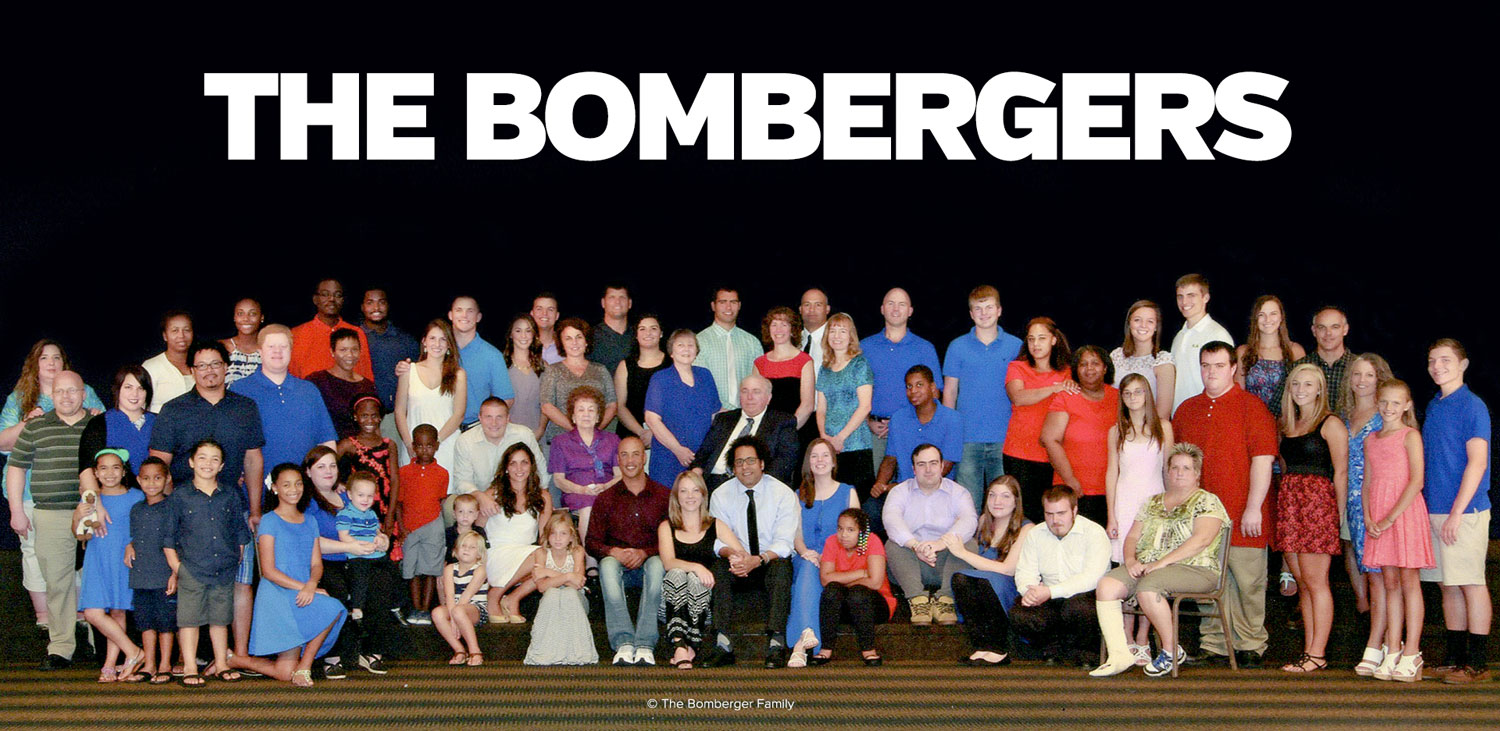
The Bomberger Family – Present Day – which includes all 13 children, their spouses and their children, Mom and Dad, and one Grandma
Of course, today, most of Sanger’s sycophantic advocates try to whitewash her entire history, but her own words and volumes of irrefutable documentation reveal the indisputable truth: Sanger saw misery in human existence and the only way to address this was to eliminate humans. Birth control was merely a euphemism for “race control” or “population control”. Steeped in eugenic racism (as evidenced by a multitude of Sanger’s writings) birth control’s main aim was “nothing more or less than the facilitation of the process of weeding out the unfit, of preventing the birth of defective or of those who will become defective.” This declaration in her book, Women and the New Race (Chapter 18) is one of hundreds of examples from Sanger that birth control had nothing to do with women’s rights or providing actual solutions to poverty. It was about crushing unseen Purpose.
Sanger birthed the world’s largest abortion empire, Planned Parenthood. Human life, to her, wasn’t something to be celebrated or seen as full of potential to conquer the odds—it was something to be controlled, despised, and destroyed if it didn’t fit within her prescribed parameters.
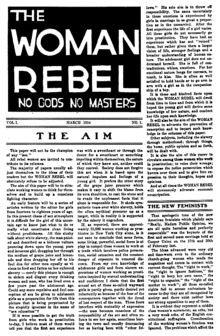 Her credo, as found in her manifesto, Woman Rebel, was “The Right to be Lazy. The Right to be an Unmarried Mother. The Right to Destroy. The Right to Create. The Right to Live and the Right to Love.” She died, according to some accounts, addicted to Demerol and alcohol. Few attended her funeral. She was not an empowered woman, but one who was a slave to sexual addiction, continuous marital infidelity, and an elitist mindset that placed her (at least in her own mind) above all others. Though she boasted on the masthead of her magazine, Woman Rebel, “No Gods; No Masters!” she became her own god, shackled by a lifetime of lies, eugenic racism, frequent abandonment of her children, and a lonely passing from this world.
Her credo, as found in her manifesto, Woman Rebel, was “The Right to be Lazy. The Right to be an Unmarried Mother. The Right to Destroy. The Right to Create. The Right to Live and the Right to Love.” She died, according to some accounts, addicted to Demerol and alcohol. Few attended her funeral. She was not an empowered woman, but one who was a slave to sexual addiction, continuous marital infidelity, and an elitist mindset that placed her (at least in her own mind) above all others. Though she boasted on the masthead of her magazine, Woman Rebel, “No Gods; No Masters!” she became her own god, shackled by a lifetime of lies, eugenic racism, frequent abandonment of her children, and a lonely passing from this world.
The difference between my mother and Margaret Sanger is simple: God. My mother’s life could have resulted in a path that saw human existence mired in misery. Instead, she saw beautiful Possibility. She didn’t see others as defective but deserving. She didn’t see marriage as a funding source to launch a cause but a source of security and devoted love to unleash Purpose.
My mother’s life may not be immortalized in history books, but she has made history. She personifies strength, grace, wisdom, and most importantly, love. She (and my father, of course) have rewritten the narrative given to ten children who were wrongly thought to be “unwanted” and “unloved.” Margaret Sanger personified brokenness—a woman who couldn’t see the pieces she was making of millions of lives. Sanger thought her Birth Control Crusade would achieve perfection through elimination. My mom believed in elevation through compassion. She never claimed to want or be perfection, but she was the perfect one for ten adopted and three biological children whose lives are still unfolding, whose families are still growing, whose dreams are still coming true, and whose actions of love and compassion will be felt for generations.
-
[…] Sanger’s life was one rooted in brokenness that promoted further brokenness. Her hatred of those she considered “unfit” wasn’t […]
[…] Sanger’s life was one rooted in brokenness that promoted further brokenness. Her hatred of those she considered “unfit” wasn’t […]



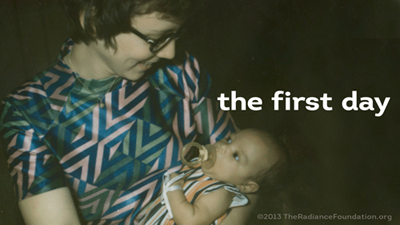
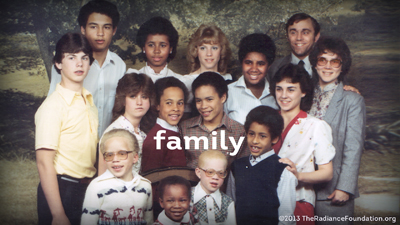

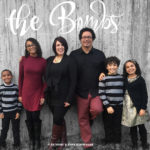
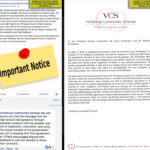
Wow. This is both inspiring & heartbreaking. Thank you for sharing.
Sounds a lot like my family. I am 71 & my youngest adopted child is 15. My husband & I have 11 adopted special needs kids, 2 from my husband’s first marriage & 3 birth kids. When my husband met me I was a 34 year old widow with 8 adopted kids. With his 2 we started with ten. We then went on to have three birth kids & adopt 3 more kids. My oldest is 54. We could never have lived this life without GOD
‘s help. It has been amazing . We love your story & praise GOD for your witness for children.
Brilliant! Thank You for sharing your mom with us. I want to be like her when I grow up. I would love to have some of her rub off on me and the workd quite frankly.
I hope peopld share this loud and proud.
Our circumstances dont have to make you bitter, if you choose kind. Choose better, choose love, choose Jesus.
Your mom raised a wonderful brilliant son.